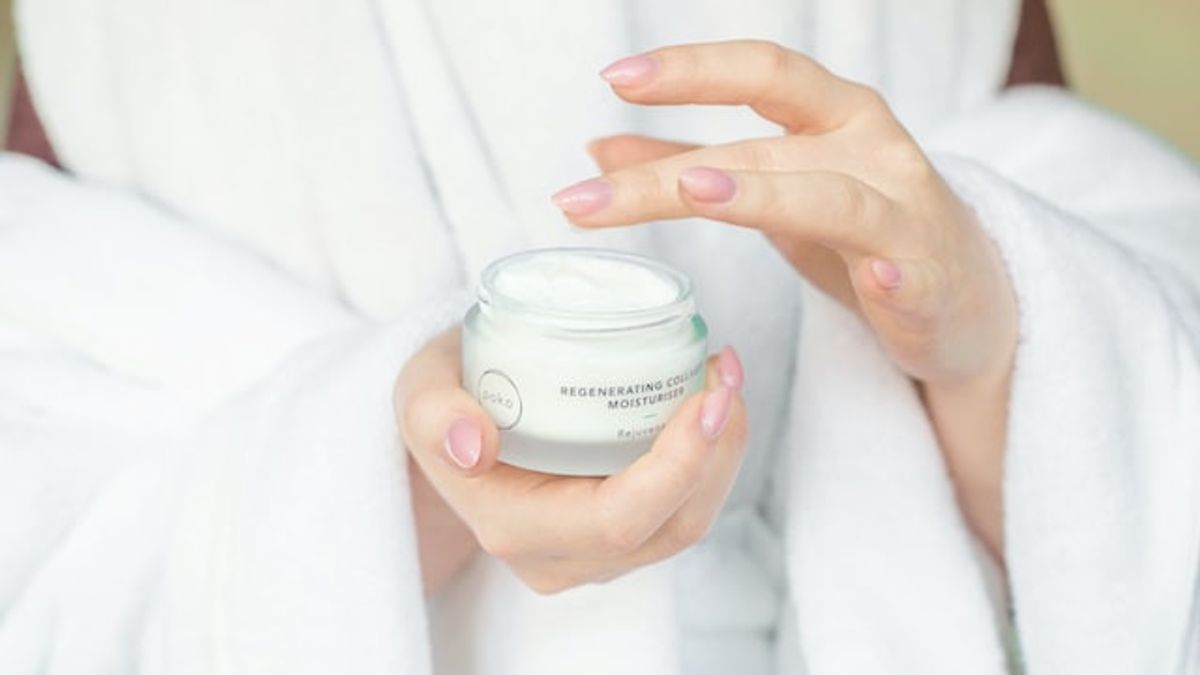JAKARTA - Vitamin C and retinol are popular skincare products that work to reduce dark spots and fine lines. You may have often heard of the benefits of retinol and vitamin C on social media, such as TikTok or Instagram. Although both offer benefits for the skin, many people still ask can vitamin C and retinol be used together?
Before that, you need to know that retinol is a derivative of vitamin A which is often found in beauty products, especially anti-aging products. This is because this ingredient can renew skin cells, protect collagen by fighting free radicals, and protect the deepest layers of the skin to reduce wrinkles, fine lines, and minimize the appearance of pores.
"Not only does it reduce fine lines and wrinkles, retinol can also treat hyperpigmentation, acne, skin texture, circulation, and even out the color," explains dermatologist Azadeh Shirazi, MD, quoted by Byrdie, Friday, August 12.
On the other hand, vitamin C is a powerful antioxidant that can protect the skin by neutralizing free radicals. The antioxidant properties of vitamin C can also accelerate the process of skin regeneration, lighten dark spots, increase collagen, and improve texture.
According to doctor Shirazi, there is no problem if you use retinol and vitamin C together in your skincare routine every day. The reason is, these two ingredients are considered a "matched pair" in fighting aging.
But you have to be careful when using vitamin C and retinol. To avoid the risk of irritation, Shirazi does not recommend using them at the same time. Instead, she suggests taking vitamin C in the morning and retinol in the evening.
Todd Minars, MD a dermatologist has a different opinion. According to him, use the products one by one until the skin gets used to it, then try to combine them slowly until the skin does not cause an irritating effect if both are used together.
Using retinol and vitamin C together can make facial skin smoother and look brighter.
“Vitamin C can fight, protect, and increase collagen production, while retinol renews skin cells and stimulates collagen. Both of them can also reduce pigmentation and lighten dark skin tones,” said dr. Shirazi.
If you use retinol and vitamin C as part of your skincare routine, one of the side effects that you may experience is irritation, especially when you add these two ingredients together.
However, irritation can be prevented by separating its use, namely retinol at night and vitamin C in the morning. In addition to separating their use, Shirazi also emphasizes that you are more selective when choosing skincare products that contain vitamin C.
Skincare with a high percentage of vitamin C can cause breakouts in acne-prone skin.
"If you have acne-prone and sensitive skin, I recommend using a low percentage of vitamin C, between five to 10 percent," he said.
That's the expert's explanation about using skincare that contains retinol and vitamin C. Overall, you can include retinol and vitamin C in your skin care routine, but it's best not to use them at the same time to prevent irritation.
The English, Chinese, Japanese, Arabic, and French versions are automatically generated by the AI. So there may still be inaccuracies in translating, please always see Indonesian as our main language. (system supported by DigitalSiber.id)













